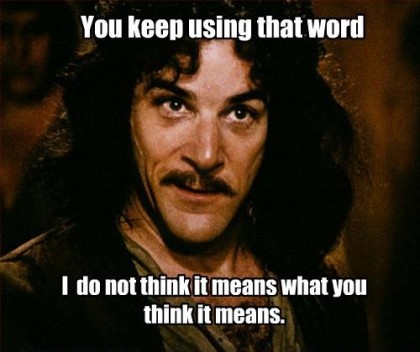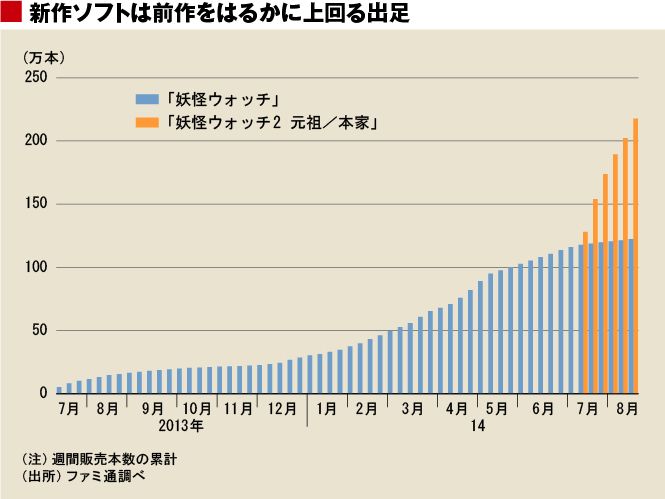sörine;127319699 said:
Would they really though? I mean wasn't Tomb Raider a rather public company rocking disappointment at 3.4m? If FFXV, MGSV or RE7 drop to 4m while costs are still rising then I'm not sure that's a phenomenon their publishers will look at and decide to just ride out and keep going as is. Especially given the propensity for debut franchise releases each generation to also be the best selling. I guess that's where we don't see eye to eye, I'm unsure if that big buffer is really all that big?.
This is actually one thing I feel trips people up a lot. Unit count isn't actually especially meaningful on its own in that it doesn't take into account average selling price.
Like, let's go look at Square Enix's statements on this matter:
http://www.gamespot.com/articles/sq...omb-raider-hitman-sleeping-dogs/1100-6406625/
GameSpot said:
"The European market was generally soft," Square Enix explained. "However, what affected us most was the huge slump in North American sales. Not only were sales sluggish, but we were also hit by additional costs in dealing with distribution channels, such as price protection and rebates, which placed huge pressure on our profit and loss."
Retail game console margins are such that you have a fixed fee of $12 from the licensor and then the retailer wants $12 for a $60 or like $5 for a $20 game to stock it.
If you're selling your game at $60, then you're getting $36 in your pocket. If you're selling it at $20, you're getting about $3 in your pocket unless you're part of some greatest hits line where Sony/Microsoft give you a break on licensing fees.
Return fees and price protection are essentially where a retailer goes "Well to sell this game we have to sell it at $30 and we're keeping a $7 margin at that level so from the $48 we paid Square Enix per copy, we're going to get a $25 rebate." and suddenly even if they're selling millions of units their profits are evaporating, since now they're making $11 instead of $36 a unit.
Hitman and Tomb Raider had notable issues with actual average selling price. With Metal Gear and Resident Evil we actually see much stronger sales up front and thus the numbers their ASP is a lot better. When you get 5 million copies out the door up front, even if only half of those are at full price, it's a lot better than shipping 3.4 million with only half at full price. When you sell that much you also tend to keep your price better as your go down the line as well.
This is also part of why you can see two games sell similar amounts (Battlefield: Bad Company 1 shipped 2.5 million copies and Mirror's Edge shipped 2 million), but one of those was considered a notable success by the publisher and the other a giant bomb, since Mirror's Edge's ASP is through the floor while Bad Company 1's was pretty good and could be built upon to the hugely successful Bad Company 2 and later titanic Battlefield 3.
In my statements I'm assuming that if their sales drop they're still having strong upfront sales as already successful series in decline instead of word-of-mouth bargin bin sales befitting a new IP or a franchise reboot, as most sequels to active series sell a ton up front and then taper off rather quickly.
Were MGS5 to ship 2 million units in its first quarter and then slowly climb to 4 million that would obviously be a lot worse than shipping 4 million upfront, selling 80% of that, and having the rest sit around on shelves and slowly get sold over time due to mostly selling to the existing fanbase.
sörine;127319699 said:
Yes my picks were problematic due to the wider western appeal, and in the west consoles are looking to still be a very lucrative market, but that's also why I picked them. That's sort of the question, when will those franchises hit the tipping point? I'd agree FF's positioned to be in question sooner than RE or MGS, but it was more about similarly scaled important global brands. You could swap in Kingdom Hearts or DMC or Tekken or Sonic if you like, but my query would be the same.
Yes actually I think DMC is a nice example of a series that might have died due to market conditions and a shifting interest away from the genre. However, that is something that's already on the basic borderline of not being success capable. Like generally it's expected that you ship 2 million units to hit a profit on 360/PS3 and that is probably closer to 3 million units on PS4/XB1, not necessarily due to cost being $36 * 1 million copies more, but due to what ASP you can actually maintain on the copies you do sell.
As a series stuck at around 2 million units, simply switching generations to something with a slightly higher bar proves problematic.
Strong digital success can offset this - for example EA Sports titles seem to be selling less but making more due to 70% margins * ~$400 million in ultimate team revenue - but you obviously need some kind of base to sell to first.
Edit:
Especially given the propensity for debut franchise releases each generation to also be the best selling.
Also this I wanted to cover separately again.
This is only true of franchises in decline. If you look at Call of Duty 2, Assassin's Creed, FIFA, Far Cry, Borderlands, Elder Scrolls, Mass Effect, Battlefield, or GTA you don't see this kind of behavior.
We have seen it with a lot of Japanese franchises, but that mirrors their decay. That said, Resident Evil 6 is shockingly close to Resident Evil 5 given how poor it is. We have 5.9 million shipped and still rising versus 6.7 million that was accrued over a very long time.





